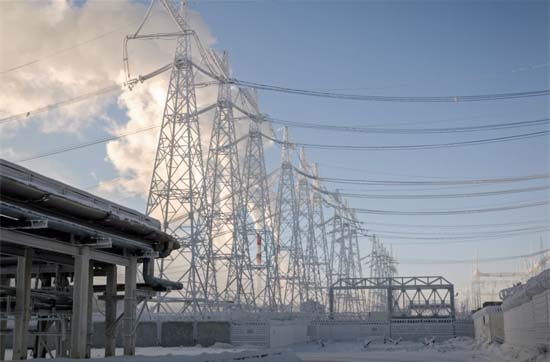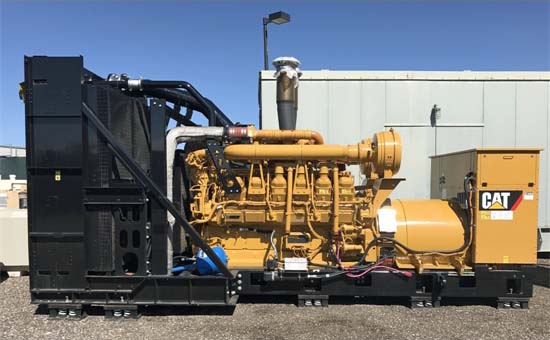Facilities and Power Losses
In an emergency situation, is your commercial building or facility prepared? What would happen if a major storm hit your area with a large-scale power failure that resulted in complete loss of power? If your commercial facility is anything like many others across the nation, it is likely ill-prepared to handle a sustained power failure.
In fact, most commercial facilities do not have sufficient backup power that would be necessary to keep the facility running in the event of a total power failure. For example, during the Northeast blackout in 2003, despite the fact that New York City's 58 hospitals had UPS and backup generators in place, 'half of (the city's) hospitals suffered failures in their
backup power generators.' This failure was not due to generators not being in place; rather, it was due to insufficient generators and lack of knowledge on how the generators would perform in an actual emergency.
According to a groundbreaking survey on emergency/backup power and power controls, a 'nationwide sample of
facilities executives shows wide gaps between what they have, what they want, and what they need.' And even though many commercial facilities have either looked into or actually purchased emergency or backup power systems, these systems may not be equipped to handle a complete and/or prolonged loss of power.
Now is the time to assess your commercial facility and determine the steps necessary to guarantee your facility has access to the emergency generator power it might need in the event of a massive blackout. Some power outages, such as power failures from national grids, are not predictable. Even so, it should be expected that power grid failures will spontaneously and randomly occur at periodic, short intervals. While less common, complete blackouts do happen. When they do, they can last for extended periods of time and cause complete shutdowns of commercial facilities. Blackouts can essentially shut down a commercial facility's operations for a prolonged period of time.
Blackouts and Power Outages are Becoming More Frequent
Outages due to weather-related reasons such as storms and severe weather, cold and ice, hurricanes, tornadoes, etc. have doubled since 2003, there’s an excellent recent
report and chart here that outlines these on a state by state basis.
Unplanned disturbances, typically on power lines and wires, are what cause most blackouts. Severe weather can take down entire sections of the system. The U.S. power grid has been slowly improving its load capacity and monitoring technology for years so the ability to handle the increasing load has greatly improved, but this does little in the overall unplanned outage department.
Operational mismanagement and control errors can trigger shutdowns, coordination failures can create overloads, and even trees falling or leaning can cause unplanned havoc. The reliability of the Transmission & Distribution system is obviously more complex than simply having the ability to handle the load.
Experts also say, 'Power cuts are becoming more and more frequent. Large-scale,
super regional blackouts are increasingly a realistic scenario. Even small outages can have disastrous effects on unprepared businesses.'
Unfortunately, the codes and regulations currently in place are not necessarily sufficient when it comes to extreme circumstances. 'It seems that designing the emergency power systems according to code is not always enough to prevent failure of the emergency system. Incorporating a common-sense approach that may exceed code when determining the location of components in an emergency backup and standby power system enhances reliability and resiliency of that power.'
Preparation is the Best Defense Against Power Outages in Commercial Facilities
The mere thought of a complete power outage can be daunting for commercial facility owners or managers and can cause some to adopt an 'it won't happen to me' attitude. But the possibility of a total power failure - either due to a natural disaster, a man-made disaster, or a blackout - should not and cannot be ignored. The time to prepare is before an emergency - not after. Being proactive in protecting your commercial facility prior to a power outage occurring is a must.
Get a Backup Power Plan in Place

No matter what type of facility you are managing (manufacturing plant, data center, telecom packaging plant, agricultural operation, processing facility, commercial building, etc.) you should have a thorough plan in place to deal with power outages of all types - from short term to extended.
If you have not done any planning now is the time to take a close look at your infrastructure and current environment, here are a few key points to note:
- At the most basic level, you should have a backup power generator of some type (natural gas or diesel) that is large enough to power up your critical systems. A commercial electrician can help test your load and also review future requirements. Depending on how your account is set up and your separate facility is reported on, you can also typically get usage data and averages from your local power company to see what type of load you have historically used.
- You will also most likely need an Automatic Transfer Switch (aka an ATS). It monitors your utility power. When an outage occurs, it transfers power from the utility to the generator which starts up and supplies power to your residence and/or business. When power to the utility is restored, the ATS transfers back to the utility and shuts down the generator.
- On top of simply having the above, you may also want to consider a UPS for short-lived outage coverage as well, so you don’t lose power to front line systems like servers and computers before the generator takes over.
- Generator Maintenance & System Testing – many people get the basics above but forget to make sure everything stays operational and will perform when it’s needed most. This was painfully obvious in a number of blackouts when even hospitals had issues with generators that had not been properly maintained and they had to divert patients to other facilities. If nothing else, make sure you occasionally run your generator, there is no type of mechanical equipment with an engine that does well when it sits idle for a long period of time.
- Fuel Management Planning - in the event of an outage from severe weather, knowing how long your current fuel storage will allow you to run is the first step. Refueling and knowing how you are going to get fuel during an extended outage is also critical. What is your plan if natural gas lines are down or a fuel delivery truck can’t get into your area? Is your generator properly installed to operate in a flooded environment as well? These are just a few examples of the types of questions you need to run through to be fully prepared.
Unfortunately, in today's world of high reliance on electricity and power, it's not will a failure happen, it's when. Extended blackouts can be a major source of financial loss to both the occupants of commercial facilities as well as to the facility itself. Since power failures are often not predictable, nor are they always the result of an internal malfunction, it's essential for commercial facility managers to prepare ahead of time for a means of providing a stable supply of electricity that will allow operations to continue in the event of a total power failure.
If you are unsure what type of generator is best suited for your particular application, be sure to
Contact Us today and one of our knowledgeable representatives can help assess your situation and walk you through the process.
>>Back to Articles & Info<<